Why You Should Know “The Indispensable Man”
Why You Should Know “The Indispensable Man”
by Alexander Green
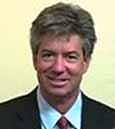 In my former life as a money manager, I found that many investors, often aided and abetted by their advisors, used a blinkered approach to the stock market. Based on this, you then made an educated guess about what lies ahead for the stock market. This, in turn, leads to a theory about which stocks to buy.
In my former life as a money manager, I found that many investors, often aided and abetted by their advisors, used a blinkered approach to the stock market. Based on this, you then made an educated guess about what lies ahead for the stock market. This, in turn, leads to a theory about which stocks to buy.
But a theory that’s based on a guess that’s based on a hunch may not be the best foundation for your investment portfolio.
Investors hate uncertainty. And history shows that they will pay brokers, hedge fund managers and investment gurus a lot of money to eliminate it. The problem is they can’t.
Count yourself a sophisticated investor the day you wake up and say, “Given that no one can tell me with any certainty what the economy or financial markets will do, how should I run my portfolio?” This is the beginning of investment wisdom.
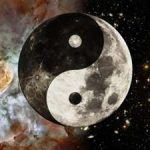 When my publisher, Julia Guth, first heard me describe my market-neutral approach more than a decade ago, she referred to it as “the Tao of the Dow.” (I think she enjoyed saying this, in part, because Tao is also pronounced “Dow.”)
When my publisher, Julia Guth, first heard me describe my market-neutral approach more than a decade ago, she referred to it as “the Tao of the Dow.” (I think she enjoyed saying this, in part, because Tao is also pronounced “Dow.”)
I had never considered my approach a Taoist one, but as I learned more about the philosophy, I was struck by the similarities. Consider, for example, the following verses from China’s ancient Tao Te Ching. They could be aimed squarely at economic forecasters, market timers, and metaphysical speculators:
The ancient Masters
didn’t try to educate the people,
but kindly taught them to not-know
When they think that they know the answers,
people are difficult to guide.
When they know that they don’t know,
people can find their own way.
Or consider this verse:
Not knowing is true knowledge.
Presuming to know is a disease.
First realize that you are sick;
then you can move toward health.
Or even more simply:
Those who know don’t talk.
Those who talk don’t know.
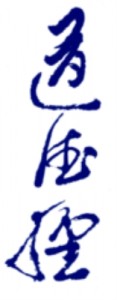 The venerable Tao Te Ching is not an investment guide, of course. It’s a 2,600-year-old collection of 81 brief poems that describe a vision of what our lives would be like if we lived in harmony with the way things are.
The venerable Tao Te Ching is not an investment guide, of course. It’s a 2,600-year-old collection of 81 brief poems that describe a vision of what our lives would be like if we lived in harmony with the way things are.
It’s among the most translated books in the world, exceeded only by the Bible and the Bhagavad-Gita. The Tao itself represents a transcendent mystery, something we cannot name or even imagine. Interpreted literally, it is “the way” of the universe, an explanation of life.
It contains no moral code, however. In fact, the Tao Te Ching is rarely about taking action. More often, it’s about the wisdom of inaction and accepting what you cannot change, be it the state of the economy, the death of a loved one, or the behavior of your adult children.
Tradition tells us the author is Lao Tzu, a keeper of the imperial archives in the ancient capital of Luoyang, who lived around 600 B.C. But more likely, he didn’t exist at all. Like Homer, Lao Tzu is probably a combination of many ancient sages – and the Tao is a compilation of wisdom that came into being over a great period of time. (The words lao tzu literally mean “old philosopher.”)
Taoist philosophy challenges you to embrace paradoxical thinking. For example, you may believe an affront requires a forceful response. Lao Tzu encourages you to consider humility instead. A problem needs an effective solution? Consider the benefits of non-action first.
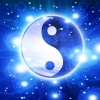 The ancient symbol of the Tao shows the two phases of the moon conjoined. This represents the yin and yang of the world: masculine and feminine, darkness and light, weakness and strength, action and inaction.
The ancient symbol of the Tao shows the two phases of the moon conjoined. This represents the yin and yang of the world: masculine and feminine, darkness and light, weakness and strength, action and inaction.
In the West, we tend to think that opposites contradict. The Oriental view is that they compliment each other – and it is only when we change our ingrained ways of thinking that we begin to change our world.
Taoist philosophy presents us with a different point of view – one that requires an open mind and considerable reflection to be fully appreciated. It reminds us, for instance, that we may be so busy trying to get rich, change the world or improve ourselves that we miss life’s essence. Verse 8 says:
Fill your bowl to the brim
and it will spill.
Keep sharpening your knife
and it will blunt.
Chase after money and security
and your heart will never unclench.
Care about people’s approval
and you will be their prisoner.
Do your work, then step back.
The only path to serenity.
Taoism offers an alternative view of abundance, one that values maintaining dignity over acquiring social position, and enjoying free time over acquiring possessions in measuring the quality of life.
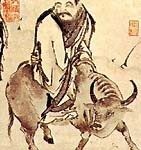 Culture, society and technology have changed a great deal over the last few thousand years. But the Taoist philosophy remains relevant. For example:
Culture, society and technology have changed a great deal over the last few thousand years. But the Taoist philosophy remains relevant. For example:
Knowing others is intelligence;
knowing yourself is true wisdom.
Mastering others is strength;
mastering yourself is true power.
Or consider this timeless nugget:
Wise men don’t need to prove their point;
Men who need to prove their point aren’t wise.
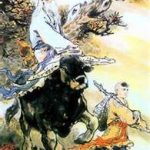 Lao Tzu said wise men and women have a nature like water. Water can be forceful, yet it’s always the first to yield, moving quickly around obstacles, and relentlessly seeking the simplest path. With time and persistence, water will wear away the tallest mountains and transform the landscape.
Lao Tzu said wise men and women have a nature like water. Water can be forceful, yet it’s always the first to yield, moving quickly around obstacles, and relentlessly seeking the simplest path. With time and persistence, water will wear away the tallest mountains and transform the landscape.
People who are confrontational – who remain dogmatic – never learn this lesson. They’re more interested in being right than moving forward. The Tao Te Ching says:
People are born gentle and weak;
at their death they are hard and stiff.
All things, including the grass and the trees,
are soft and pliable in life;
dry and brittle in death.
Stiffness is thus a companion of death;
flexibility a companion of life.
An army that cannot yield
will be defeated.
A tree that cannot bend
will crack in the wind.
The hard and stiff will be broken;
The soft and supple will prevail.
One of the classics of Oriental literature, the wisdom of the Tao Te Ching is both simple and profound. And it’s easy to follow. The secret is not to complicate it.
The Tao encourages you to stop feeding your ego and enjoy the fruits of your labor. It teaches that the experience of inner peace is the true gauge of accomplishment.
The Tao Te Ching deals with many of the most basic human experiences: birth, death, loss, gain, dignity in the face of challenge, how to judge the character of a person, when to move forward, when to retreat, how to deal with good fortune or ill fate. There is even sage political advice: Governing a large country is like frying a small fish. You spoil it with too much poking.
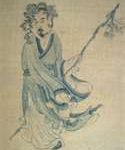 Despite his wisdom, Lao Tzu expected skepticism. He seemed to know his message would not always be well received:
Despite his wisdom, Lao Tzu expected skepticism. He seemed to know his message would not always be well received:
When a superior man hear of the Tao,
he immediately begins to embody it.
When an average man hears of the Tao,
he half believes it, half doubts it.
When a foolish man hear of the Tao,
he laughs out loud.
If he didn’t laugh,
it wouldn’t be the Tao.
Our lives are full of responsibilities and obligations. Technology and the pace of modern life add even more pressure and anxiety. Yet it’s possible to gain understanding from the Tao Te Ching, a 2,000-year-old discourse on the nature of existence.
Taoism teaches that to be truly free, we must be able to work with change, rather than against it, that we should be humble, flexible and detached from worldly concerns, and that the art of abundance is often a matter of recognizing, appreciating and celebrating life as it is:
If you look to others for fulfillment,
you will never be truly fulfilled.
If your happiness depends on money,
you will never be happy with yourself.
Be content with what you have;
rejoice in the way things are.
When you realize there is nothing lacking,
the whole world belongs to you.
Carpe Diem,
Alex Green
Reprinted with permission.
Alexander Green is the Investment Director of The Oxford Club. Copyright © 2011 by The Oxford Club, L.L.C Spiritual Wealth Member Services ed****@sp*************.com
